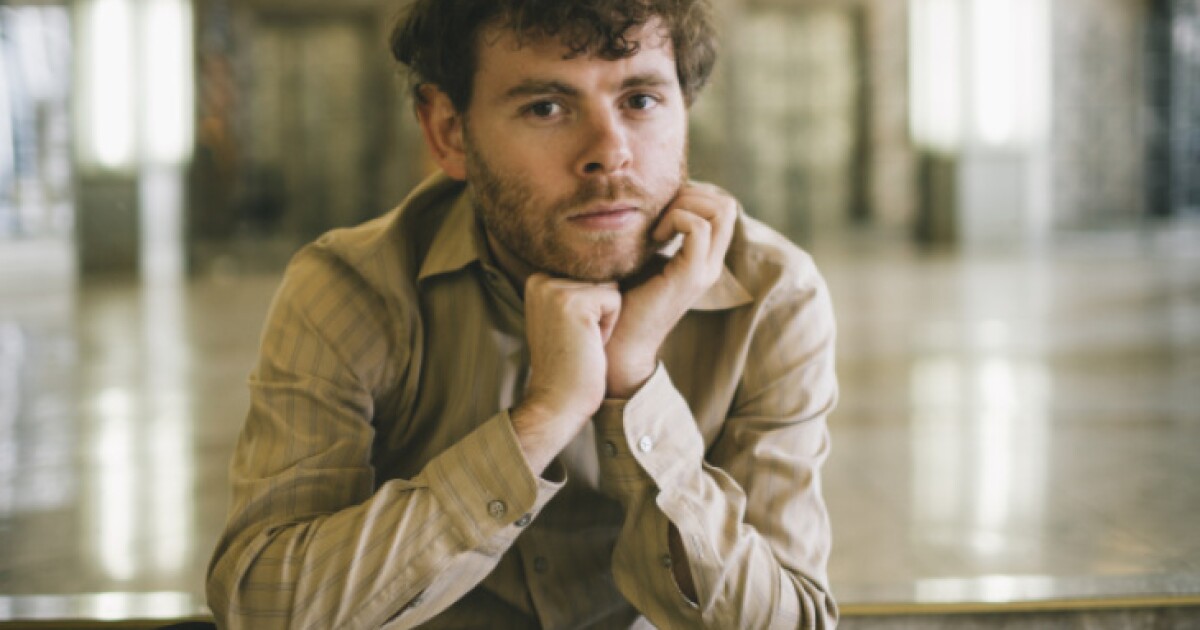For lots of folks (meaning: everyone), the idea of ditching your mobile phone and quitting the internet for a year would be inconceivable. Like certain young adults I know with the last name Horn, a mere 30 minutes disconnected can be agonizing.
In response to that ceaseless online tethering, the musician gabriel kahane stepped away from the virtual world for 12 months: no email, no texting, no social media, no doom scrolling.
He hasn’t used a mobile phone for more than three years and counting. And what Kahane discovered during that electronic sequestration produced a lesson — and an album — we all should consider.
Kahane’s new record is called Magnificent Bird. It follows a previous album inspired by a different kind of odyssey. Rather than stew over the 2016 presidential election, Kahane left his home, boarded a train and visited more than 30 states. His conversations with fellow Amtrak passengers yielded 2018’s Book of Travelers.
Kahane, who’s performing Thursday night at Gold-Diggers in Los Angelessays Book of Travelers inspired Magnificent Bird.
“I was somewhere in the middle of the country in 2016, on one of those trains, and having had all of these extraordinary conversations with other travelers, and I thought to myself, ‘I really ought to take more time off the internet,’ Kahane told me this week.
“As much as it is a sort of Hallmark sentiment that we have more in common than we have that divides us — and that there are these forces in the world trying to will us into contempt for each other — I think it’s true. It’s not so much that we are more polarized or that people have become more extreme, but just that social media makes the loudest voices louder.”
Just like his train trip, Kahane’s online embargo was about connecting — and reconnecting — with people. Kahane believes the internet, especially social media, makes it harder for us to love one another, thus making it harder to build personal connections and coalitions to bring about change.
Here’s an excerpt from the title song on the album
I suppose that’s why I stepped away
For a year clear of the scroll
A picc line drip of glowing hearts
Righteousness and shopping carts
As if it could ever make us whole
And when my friends call and tell me that
It’s worse than before, friendly fire
And hungry for more,
I don’t know what to say.
Kahane said being off the internet during the pandemic made him reconsider personal connections, and how important they are for artists.
“What is the thing that keeps me going? Because writing music is really lonely, it’s often not that fun. You sit draft after draft after draft trying to get the song right. And yet, there’s something that makes us keep doing it,” Kahane said.
“It’s partly compulsion, makeup, whatever. But I began to realize that at least for me, it is all about these sort of intimate interactions that are really, really nourishing,” he said. “Those can be a conversation at a merchandise table after a show with one person, or it can be a letter from a fan.”
Kahane isn’t inclined to explain his lyrics; listeners can read into his words from him whatever they want.
Every time someone with 1 million followers on Instagram or Twitter posts something, they’re implicating all of those people in the project of Mark Zuckerberg’s wealth and the algorithms that divide us.
—Gabriel Kahane
But in several songs, it feels as if Kahane is both celebrating and lamenting the concept of alliances — of people not sharing Instagram posts about climate change, for example, but taking personal action to make something happen.
The album’s first song, in fact, is called “We Are the Saints”:
I keep dreaming that I’m climbing up a dusty road
To the top of a cold clear mountain,
Guided by a voice on the radio, it says,
Your feet are the future, so keep on walking
Ironically enough, Kahane’s internet absence has made it difficult to drum up social media interest in his new album. But that kind of misses the point of what Kahane is saying.
“It’s really about punching up at people who have bigger platforms than I have to encourage them to be more intentional about the ways in which they use those platforms,” Kahane said.
“Because every time someone with one million followers on Instagram or Twitter posts something, they’re implicating all of those people in the project of Mark Zuckerberg’s wealth and the algorithms that divide us,” he said.
I recently took my son to a John Mulaney comedy concert. You couldn’t bring your phone in. So before Mulaney went on, people didn’t ignore the person right next to them and stare into a screen. They actually talked to each other.
“Nothing in our society has been as transformative as the phone itself,” Kahane said. “It’s not the particular software, it’s not the particular platform. The things that are drawing us toward it will change and continue to change but that’s going to be the thing that really sets the tone for how we relate to each other.”
What questions do you have about Southern California?
